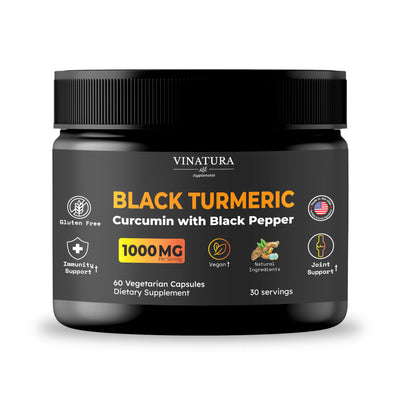
Irish Moss Vs Sea Moss: Are They The Same?
Irish Moss and Sea Moss are two types of seaweeds commonly used in supplements and beauty products. The confusion between Sea Moss and Irish Moss is quite frequent. This has impacted consumers when choosing the right product for their needs, as each has its unique benefits. This article will help you explore Irish Moss vs. sea Moss, guiding you to decide which one is best suited for your health.
Before exploring further, please read the disclaimer located at the end of this webpage.
Key Takeaways
- Irish Moss: A type of sea moss that grows in cold climates.
- Sea Moss: Refers to all types of Moss that grow in the ocean, typically found in warm waters like the Caribbean and Africa.
- Both seaweeds are believed to support digestion, boost the immune system, and enhance skin and hair health.
- Irish Moss is beneficial for the immune system and skin, while Sea Moss is good for digestion and aids in weight loss.
Is Sea Moss a Moss or a Seaweed?

Sea Moss, also known as seaweed (algae), is commonly understood as a type of seaweed.
In reality, it is a type of marine plant belonging to the red algae group. They are typically found in tropical and subtropical seas, and they can also be found in the North Atlantic and Caribbean regions.
They come in various colors, including yellow, purple, blue, and green.
Is Irish Moss a Sea Moss?

Irish Moss, also known as Irish Seaweed, is a type of red algae scientifically named Chondrus crispus. Although often referred to as Sea Moss, Irish Moss is a specific type of red algae that primarily grows in the cold waters of the Atlantic Ocean.
Additionally, Irish Moss is often commercially harvested along the coasts of Prince Edward Island, Nova Scotia, and New England [1].
Irish Moss vs Sea Moss: What's the Difference?
Identification and Terminology of Irish Moss and Sea Moss
Origin
Irish Moss: This red algae originates from the cold waters of the North Atlantic, particularly around the coast of Ireland.
Sea Moss: This algae is common in warmer seas, such as the Caribbean and the Pacific.
Scientific Classification
Irish Moss: The scientific name is Chondrus crispus. It is a type of red algae belonging to the Rhodophyta group, commonly known as "carrageenan."
Sea Moss: Typically a type of algae from the Gracilaria genus, also part of the Rhodophyta group. Although sometimes collectively called "Sea Moss," Gracilaria and Chondrus crispus are two different species, though they share some similar characteristics.
Common Names and Confusions
Irish Moss is often referred to as Sea Moss, which frequently leads to confusion between these two plants.
Nutritional Profile and Health Benefits of Sea Moss and Irish Moss
Nutritional Content
Both types are rich in vitamins and minerals, such as omega-3 and vitamins A, C, E, and K [2], [3]. Notably, Irish Moss is particularly high in potassium, while Sea Moss has a higher iodine content.
Therapeutic Uses
Sea Moss supports weight loss, improves gut health, and boosts the immune system. Here are some benefits of Sea Moss [2]:
- Thyroid Health Support: Sea Moss contains high levels of iodine, essential for thyroid function and metabolism. Iodine deficiency can lead to issues like goiter and hypothyroidism.
- Gut Health Support: Sea Moss can act as a prebiotic, stimulating the growth of beneficial bacteria in the gut, thus supporting digestive health.
- Muscle Recovery Support: The nutrients in Sea Moss may help build and maintain muscle health and support muscle recovery after exercise.
- Other Health Benefits: Some studies suggest Sea Moss may have neuroprotective activity, anti-cancer properties, and enhanced immune response, but more human clinical trials are needed to confirm these effects.
The health benefits of Irish Moss include:
- Reducing the Risk of Type 2 Diabetes: It may be used to regulate blood sugar levels [3].
- Respiratory Health: Help dissolve phlegm, reduce inflammation, and treat colds and sore throats.
- Rich Nutrition: Provides 92 minerals, protein, vitamins, and taurine, boosting the immune system. It also improves circulation, delivering oxygen and nutrients to vital organs.
- Digestive Support: The fiber content offers mild laxative effects and soothes the digestive tract.
- Weight Loss: Reduces appetite, promotes digestion, and boosts metabolism.
Culinary and Commercial Uses
Food Industry Applications
Sea Moss is used as a thickening agent in food products like ice cream, stews, and various processed foods to improve texture and consistency.
Irish Moss is also commonly used in food processing and is an ingredient in skincare products.
Home Culinary Uses
Sea Moss can be made into a gel for use in cooking or desserts. You can add Sea Moss gel to soups and sauces or use it to make desserts like pudding or jelly.
Similarly, Irish Moss can also be used to make gel or added to smoothies. The gel from Irish Moss can be blended with smoothies and juices or used in desserts.
Harvesting and Sustainability of Sea Moss and Irish Moss
Environmental Impact
Sea Moss and Irish Moss provide oxygen to marine life and serve as a habitat for various marine species. Overharvesting can disrupt the ecological balance, affecting marine biodiversity.
Harvesting Practices
Harvesting seaweed, especially economically valuable types like Sea Moss and Irish Moss, requires careful planning and modern technical requirements. To ensure long-term resources and protect the marine environment, we need to practice sustainable harvesting.
How to consume Sea Moss and Irish Moss
Selection and Storage
When purchasing Sea Moss or Irish Moss, choose from reputable and quality suppliers to avoid being misled into buying the wrong product.
Some tips for selecting quality Sea Moss include:
- Avoid Sea Moss that looks too perfect, as natural Sea Moss comes in various shapes and colors.
- Natural Sea Moss will have diverse and uneven coloring.
- Avoid seaweed that is too white or coated with a uniform layer of salt, as natural sea salt differs from artificial salt.
- Choose products that contain no additives and are 100% natural.
Be sure to store it in a dry, cool place away from direct sunlight. Keep it tightly sealed to avoid moisture and mold.
Preparation Tips
Sea Moss and Irish Moss need to be soaked and properly prepared before use to maximize their health benefits. Here are some tips when you want to use Sea Moss or Irish Moss:
- Making Irish Moss Gel: Soak dried Irish Moss in water until it expands and softens. Then, blend it with water until it forms a gel. This gel can be used as a thickening agent in soups, sauces, smoothies, or desserts.
- Making a Drink: Combine the gel with juice or smoothies for a refreshing drink. It can also be chilled to create a jelly, which can be served as a dessert or paired with other dishes.
- Incorporating into Meals: Cook it in soups with seafood, meat, or vegetables. Mix it with various vegetables, fruits, and sauces to create a salad. It can also be eaten with rice as a way to include Sea Moss and Irish Moss in your diet.
- Skincare: Blend it into a smooth paste and mix it with other natural ingredients like honey or aloe vera to create a facial mask. This mask can hydrate and soften the skin.
However, if you choose to use it as a dietary supplement in powder or capsule form, you can consume it directly. Alternatively, you can mix the powder into foods or drinks to enhance their flavor.
Should You Take Irish Moss or Sea Moss?
Whether you use Irish Moss or Sea Moss depends on your needs and health condition. However, I can offer you a comparison guide as follows:
Frequently Asked Questions
Which Sea Moss is the healthiest?
Sea Moss from cold waters generally has a higher nutritional content.
What are the cons of Seamoss?
Sea Moss is considered safe for consumption. However, some people may experience allergic reactions or intolerance when using Sea Moss [4]. Additionally, it may cause side effects such as bloating, gas, diarrhea or constipation, and nausea.
What is the best form of Seamoss to take?
There is no single "best" form of Sea Moss; it depends on what suits you best. Currently, gel or powdered forms of Sea Moss are popular and widely used.
Is Irish or Caribbean sea moss better?
Irish Moss is often regarded as superior due to its higher nutritional content and health benefits. Meanwhile, Sea Moss focuses on increasing fiber and iodine levels in the body.
Do all sea moss work the same?
No. Although various types of Sea Moss share similar characteristics, each type has unique nutritional components and benefits.
Conclusion
Both Irish Moss and Sea Moss offer numerous health benefits and diverse applications. Understanding the differences between them will help you choose the product that best suits your personal needs. Hopefully, this article has answered your questions about Irish Moss and Sea Moss.
References
- [1] Stoloff L. Irish Moss—from an art to an industry. Economic Botany. 1949;3(4):428-435. doi:https://doi.org/10.1007/bf02859174
- [2] Health Benefits Of Sea Moss, According To Experts. Forbes. https://www.forbes.com/health/supplements/sea-moss-benefits/. Published July 22, 2024. Accessed August 10, 2024.
- [3] Is Sea Moss Good for Diabetes? Organics Nature. Published 2024. Accessed August 10, 2024. https://www.organicsnature.co/blogs/news/sea-moss-for-diabetes?preview_theme_id=129457324099&pb=0
- [4] Thomas I, Leonard Q.C. Siew, Watts TJ, Haque R. Seaweed allergy. The Journal of Allergy and Clinical Immunology In Practice. 2019;7(2):714-715. doi:https://doi.org/10.1016/j.jaip.2018.11.009
Author

Product Disclaimer
Including an ingredient or study does not evaluate, endorse, or recommend any Vinatura product or any third-party product. Some ingredients discussed may not be used in any Vinatura product.
The content of the articles has not been evaluated by the Food and Drug Administration (FDA) and is not intended to promote or endorse any specific product. Any products sold on this website are not intended to diagnose, treat, cure, or prevent any disease.
Opinions and Endorsements
Any claims, statements, or opinions expressed in the articles are those of the author(s) and do not necessarily reflect the views or opinions of the manufacturers of the dietary supplement products. The products sold on this website are separate from the content of the articles and are not directly endorsed or associated with the information presented here.
Liability Disclaimer
The author(s) of the articles, website, and manufacturers of the dietary supplement products do not assume any liability for any potential consequences arising from the use of the information provided in the articles. Ingredient effects, dosages, and safety vary by individual, formulation, and context; some ingredients interact with medications or may be unsuitable during pregnancy or lactation. It is recommended that individuals consult with a qualified healthcare professional before making any dietary or lifestyle changes, including the use of dietary supplements.
Product Usage
Please refer to the product labels and packaging for specific usage instructions and guidelines for the dietary supplement products sold on this website.
Customer Support
For any concerns or questions regarding the dietary supplement products, please contact our customer support team, who will be more than happy to assist you.





Leave a Comment
Be the first to comment.
What do you think?